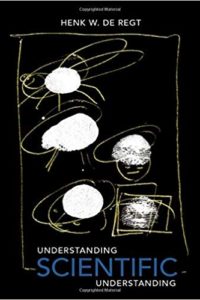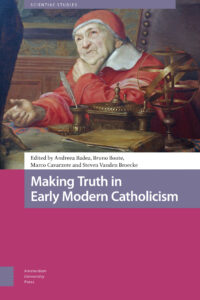About the book
This book is about scientific understanding. It is widely acknowledged that a central aim of science is to achieve understanding of the world around us, and that possessing such understanding is highly important in our present-day society. But what does it mean to achieve this understanding? What precisely is scientific understanding? These are philosophical questions that have not yet received satisfactory answers. While there has been an ongoing debate about the nature of scientific explanation since Carl Hempel advanced his covering law model in 1948, the related notion of understanding has been largely neglected because most philosophers regarded understanding as merely a subjective byproduct of objective explanations. By contrast, this book puts scientific understanding center stage. It is primarily a philosophical study, but also contains detailed historical case studies of scientific practice. In contrast to most existing studies in this area, it takes into account scientists’ views and analyzes their role in scientific debate and development. The aim of the book is to develop and defend a philosophical theory of scientific understanding that can describe and explain the historical variation of criteria for understanding actually employed by scientists. The theory does justice to the insights of such famous physicists as Werner Heisenberg and Richard Feynman, while bringing much-needed conceptual rigor to their intuitions. The scope of the proposed account of understanding is the natural sciences: while the detailed case studies derive from physics, examples from other sciences are presented to illustrate its wider validity.
Get the book from Athenaeum Booksellers, Amsterdam’s largest independent bookstore.
Reviews
“The picture of scientific understanding that emerges in Understanding Scientific Understanding is well supported and powerful” – Kevin McCain, Science & Education
“[E]xamples are well reconstructed and avoid excessive technicality, ensuring that committed readers without a physics background can understand their significance for the larger philosophical argument – a goal supported by the book’s clear and systematic exposition … the book offers a compelling picture on the strength of careful argumentation. Highly recommended.” – J. D. Martin, CHOICE
“This is a superb book on the timely topic of understanding by one of its main commentators and leading scholars over the years. It constitutes a thorough, intricate, detailed and well-argued development of the original and very fertile position of the author on the topic. It would be recommended reading for anyone with an interest in the topic, and it is likely to become one of the key references in this area over the years.” – Mauricio Suarez, Complutense University of Madrid
“This book — which creatively synthesizes two decades of his work into an elegant and provocative account of scientific understanding — is a much anticipated and welcome addition to the literature … De Regt’s discussion of the aims of science helps to rekindle an interesting topic in general philosophy of science that has languished for some time. Additionally, de Regt’s rereading of the history of physics with intelligibility and understanding at the forefront highlights underappreciated connections between different physicists’ approaches to theory construction. Finally, de Regt threads the needle between empiricism, which denigrates the epistemic importance of understanding, and realism, which tethers understanding to accurate representations of nature’s workings … All told, de Regt’s book provides a novel and productive framework for interpreting many aspects of scientific practice.” – Kareem Khalifa, Notre Dame Philosophical Reviews
About the author
Henk de Regt is met ingang van 15 juli 2019 benoemd tot hoogleraar Filosofie van de Natuurwetenschappen aan de Faculteit der Natuurwetenschappen, Wiskunde en Informatica van de Radboud Universiteit. Hij zal zijn werkzaamheden verrichten binnen het Institute for Science in Society (ISiS).
 De nieuwe hoogleraar was tot zijn aantreden in Nijmegen bijzonder hoogleraar en universitair hoofddocent Wetenschapsfilosofie aan de VU Amsterdam. Met een achtergrond in de natuurkunde en de filosofie is De Regt deskundig op het gebied van de wetenschapsfilosofie, in het bijzonder de filosofie van de natuurwetenschappen. Zijn centrale onderzoeksthema betreft de aard van het ‘wetenschappelijk begrijpen’, een onderwerp dat pas recent aandacht – mede door zijn werk – heeft gekregen in de wetenschapsfilosofie.
De nieuwe hoogleraar was tot zijn aantreden in Nijmegen bijzonder hoogleraar en universitair hoofddocent Wetenschapsfilosofie aan de VU Amsterdam. Met een achtergrond in de natuurkunde en de filosofie is De Regt deskundig op het gebied van de wetenschapsfilosofie, in het bijzonder de filosofie van de natuurwetenschappen. Zijn centrale onderzoeksthema betreft de aard van het ‘wetenschappelijk begrijpen’, een onderwerp dat pas recent aandacht – mede door zijn werk – heeft gekregen in de wetenschapsfilosofie.
Voor zijn nieuwste boek over dit onderwerp, Understanding scientific understanding, heeft De Regt onlangs de prestigieuze Lakatos Award ontvangen, een internationale prijs die jaarlijks wordt uitgereikt voor een wetenschapsfilosofisch boek van van uitzonderlijke kwaliteit.


